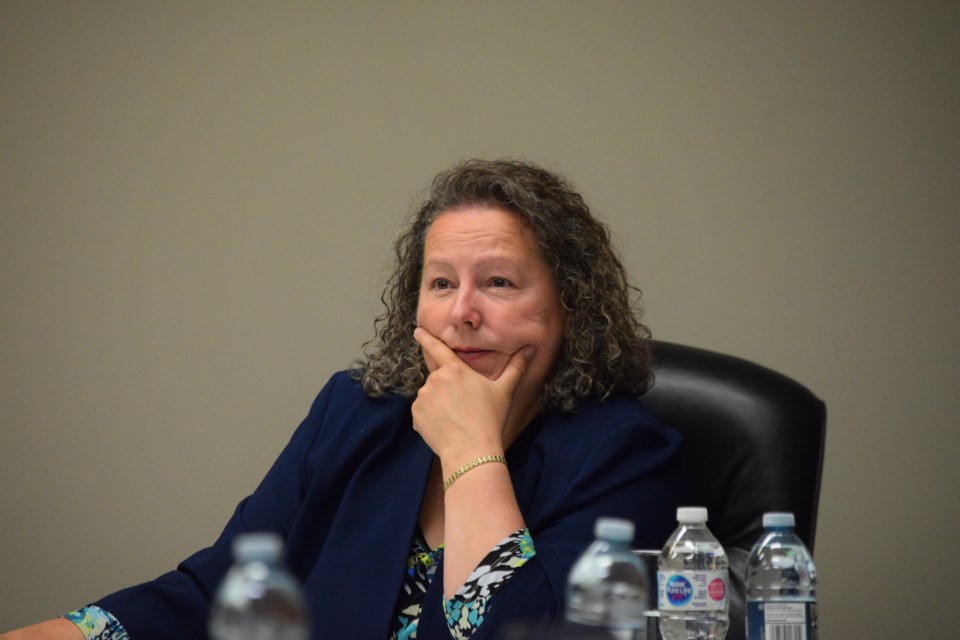BARRHEAD – The County of Barrhead hopes it will be able to add to the number of tenants at the Kiel Industrial Park through a process where the province attempts to match up investors with municipalities.
County manager Debbie Oyarzun told councillors during their July 5 meeting that she submitted a proposal to Alberta Municipal Affairs as she feels the municipality's Kiel Industrial Park would be the perfect fit for an agri-food producer.
"Investors come in through the Government of Alberta (GOA), and they, in turn, send out proposals to municipalities that they believe have something to offer those investors," she said, adding the province does give municipalities a lot of information to work with in order to draft their proposals.
The county bought the quarter section of land located at NE 27-59-3-W5, which is immediately south of the Northplex plant on Range Road 32, for $575,000 from the Kiel family in 2012 for the expressed purpose of creating an industrial park.
In April, the municipality announced that it sold its first two lots to GFR Pharma, the owners of GFR Ingredients.
GFR Ingredients is a producer and supplier of plant-based proteins. The company, which also has an option to buy a third lot, bought the property to expand its production plant in Barrhead which is currently in the old Northern Alberta Dairy Pool (also known as Nu-Maid Dairies) facility.
Coun. Bill Lane said during an April 20 in-camera meeting with GFR, the company suggested that up to a handful of other companies were potentially interested in purchasing lots at the industrial park.
"This is not them," Oyarzun replied, suggesting any interest from those companies will happen only after GFR is up and operating at Kiel. "Companies that are direct or indirect suppliers to GFR or offer a value-added product could cluster together, and then they would approach us through GFR or directly."
Oyarzun added that if those companies do decide to purchase lots, they may have to accelerate the start of the next phase of Kiel’s development.
She noted council decided that "to be fiscally responsible", they would limit the initial phase to seven lots.
"We have two sold, with an option on the third, leaving four lots. The proposal we just sent out would take another two and require additional unserviced land for laydown," Oyarzun said.
Deputy reeve Marvin Schatz suggested if the county sold two more lots, that should trigger a move to the next phase of the industrial park's development.
Earlier in the meeting, Oyarzun noted the next phase, developing a second series of lots, would come with a substantial financial cost, similar to the first seven lots, to expand services and infrastructure.
Coun. Paul Properzi asked if a plan existed for the next phase of Kiel's development.
Oyarzun said they have a tentative plan for the next two phases as part of the industrial park's area structure plan, noting about 100 acres are available for development.
"The way we did Phase 1, it allowed us to bring in utilities at a lower cost upfront, leaving them available for potential expansion," she said.
However, Oyarzun clarified that there is no set plan for the phases of development, which she said is a good thing.
"We might have to make some amendments to it, now that we know what type of industries we seem to be attracting," she said.
Initially, the county was targeting the hemp industry, and for a while, it looked like they might have some success. In late June 2018, Royal Canadian Cannabis (RCC) put a deposit down on a lot at the Kiel Industrial Park to build a medical marijuana growing and production facility. The sale of the property fell through in 2020.
Oyarzun added that in order to continue to attract interest from companies in the agri-food industry, they may have to increase lot sizes.
"(GRF) bought two lots because one lot wasn't big enough, so instead of a seven-acre lot, we might have to go to 10 acres. Once GFR begins construction, that should garner some interest, and we can adjust our plan accordingly."
She also noted two of the remaining lots have become more attractive due to the improvements Benedict Pipeline has made. In early June, the integrated oil and gas contractor signed a 14-month lease for two of the lots as a temporary base while it constructs the Key Access Pipeline System (KAPS). The KAPS pipeline will collect condensate and other petroleum liquids produced with natural gas in the Montney and Duvernay regions from the Keyra Pipestone Gas Plant north of Grande Prairie and bring them to the liquids processing and storage hub at Fort Saskatchewan.
"Besides gravelling them and adding approaches, they now have added water and have an application to connect to power," she said. "Which makes the lots that much more saleable."


